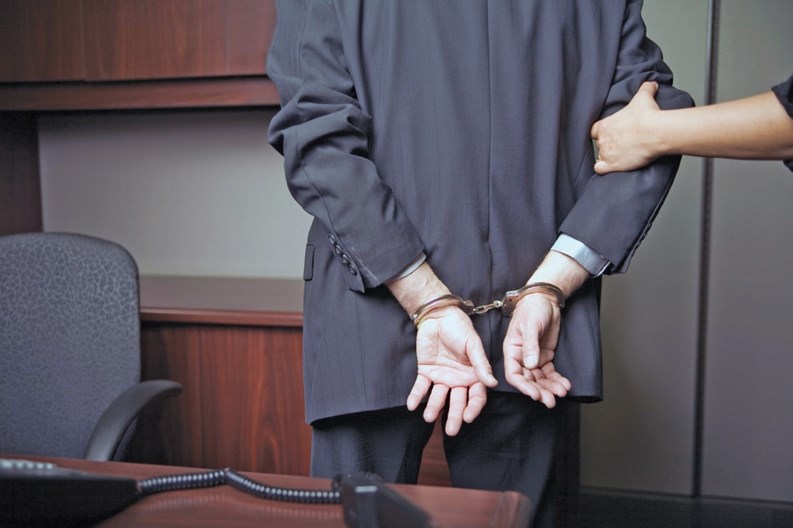Few things can be as upsetting as discovering that the funds that fuel a building or association have been mishandled—or worse yet, stolen. For residents, fraud undermines their sense of trust in the men and women who oversee and manage the place they call home. For managers and board members, it can breach the trust that exists between each other, wreaking havoc not only on the bottom line but on the very fiber of the organization itself.
A Perennial Problem
For the co-op and condo industry, the 1990s saw major scandals surrounding disreputable property managers and vendors involved in kick-backs and other fraudulent activities. The prosecutions that followed it put boards and managers on alert. Other headline-grabbing deceits in other industries (such as the Enron scandal) also prompted new safeguards and activities, including the Federal Accounting Standards Board.
Despite the changes that have occurred, however, industry experts agree that vigilance is required at all times when it comes to the financial well-being of co-ops, condos and HOAs. In these days of Bernie Madoff pyramid schemes and the tumult on Wall Street, knowing how to detect and prevent fraud has become even more important to owners and administrators alike. Responsibility, transparency and accountability have become the watchwords of financial management, and it’s a sensibility that has made its way to the world of residential housing.
Issues at Hand
There are two types of fraud, says Mindy Eisenberg Stark, CPA, CFE, of Scarsdale, New York. There is “on the book” fraud which involves activities such as commingling bank accounts, creating fictitious vendors, borrowing funds and creating fictitious employees.
By contrast, “off the book” fraud usually encompasses kick-back schemes, which another accountant describes as “money given to the superintendent or property manager in return for steering a building to a certain vendor.”
Other fraudulent activities include using credit cards and petty cash for personal use or buying products or services for themselves and disguising it as association business, says Gary Rosen, CPA, CFE of Wilkin & Guttenplan, PC in East Brunswick. Not every problem on the books is fraudulent, though. Everyone and anyone can make a mistake. Rosen has heard of instances where management accidentally paid a vendor’s statement as well as an invoice, or paid a vendor for 10 months on a nine month contract.
The difference between fraud and mistakes is that “People go to jail for one and not the other,” says Stephen Beer, CPA, of Czarnowski & Beer LLP in Manhattan, adding that it all boils down to intention. “Mismanagement can happen,” he says. “A person can be overworked and things happen, but you want to eliminate that by working with companies that are reputable.”
Two recent cases in the news highlight how the tough economy has made cooperatives and condominiums more susceptible to theft. In one case, a Suffern, New York man was arrested for allegedly stealing more than $130,000 from his condo association where he served as treasurer. In that position, he prepared monthly written financial statements for the board containing false information to hide the thefts. The district attorney's office alleges that between January 2004 and November 2009, the treasurer is believed to have stolen $130,345 from the Sussex Condominium III, while holding the treasurer’s position on the board. From January 2004 until November 2009, he wrote 47 checks from the association’s checking account that were made payable to himself and relatives, according to prosecutors. If convicted, he could face five to 15 years in state prison.
The second case happened at a Jacksonville, Florida condominium, where the manager pleaded guilty to embezzling nearly $167,000 from the association's bank account over a seven-year period. The now-former manager of the Timuquana Village Condominium Association paid back the money but was sentenced under a plea agreement to 10 days in jail to be served on weekends. She also must perform community service. She had been association manager since 1988, and an audit revealed that she wrote checks to herself from the association’s account for personal items from 2002 until June 2009, when she resigned.
Stopping Before it Starts
Those who know say that if fraud has occurred or is taking place, there are usually tell-tale signs. “You might have vendors complaining that they’re not getting paid when the board thinks they are,” says Stark. The board not getting financial documents when they request them could be another sign. Seeing a rise in expenses without apparent cause also can hint at trouble. And of course, there’s the biggest red flag of all: running out of money.
Of course, by the time money has been lost the proverbial horse is well out of the barn, so the best way to prevent it is to stop it before it starts. This is where a system of sensible checks and balances comes into play, and why having a competent, reliable financial professional in your association's corner is of such paramount importance.
According to Daniel Brown, a CPA with the accounting firm of Rosenberg Rich Baker Berman & Co. in Bridgewater, good accountants pick up on "variances from budgeted results, unusual sources of revenue or significant repair and replacement expenditures." Deficits, bad debts, low cash levels, and lawsuits all affect the financial health of a community, so having these numbers in good shape means health for the whole. Financial statements can even be used, says Brown, "To determine if there are any amounts for which the developer may be liable to the association," especially during the transition of ownership from developer to association members. Well-kept records can also be assessed by forensic accountants for red flags if a board or management suspects shady dealing.
But it's not all about highly-trained professionals. Even just requiring more than one person to sign checks over a certain amount can discourage fraud. As many trusting individuals have found out the hard way, with scam artists like Bernie Madoff, leaving all the financial responsibility in the hands of a single individual can be a recipe for disaster. Requiring duplicate signatures on all issued checks—part of what is called 'segregation of duties'—is just one more way of knowing that if something doesn't seem quite right, another pair of eyes may help. And it's a good idea to employ this theory not just in issuing checks, but also in purchasing services.
These seemingly little things can make all the difference, says Stark. “People become too trusting and sometimes one person becomes too powerful,” she says. In co-ops and condos where millions of dollars may be at stake, the risk is too high to simply hand over control to one individual.
"Many of my associations also are introducing finance committees, to make sure everything is comprehensive and accurate," says Rosen, who is himself a certified fraud examiner.
When a managing agent gets a financial package, or statement, every month, that agent, "should be reviewing that with your board," adds Jules Frankel, also with Wilkin & Guttenplan. "You should also be meeting with your accountant at least once a year to review the audit details, and meet with your investment strategist at least once a year."
Stark agrees. “You have to have oversight and checks and balances,” she says. “Information is very important to have. People need to spend time and look at the management report.” And that report should be comprehensive, including actual bills and bank statements, not simply the documents generated by management.
Hand in hand with asking questions and having more than one pair of eyes examining the books comes the need to go through proper channels. When hiring a vendor, it’s imperative to get and see proposals from a variety of vendors and not rely simply on the property manager handing in a report. The board should know where those cost estimates came from and who supplied them.
It’s also important, Stark says, to make sure that accounts are never co-mingled with anyone else’s money. Some management companies may maintain large holdings with funds from several buildings in one account. That could be a dangerous situation, Stark contends, and should be avoided.
Perhaps most important of all, it is imperative for boards and management to create an atmosphere of zero tolerance among staff, volunteers and vendors. Without it, people who suspect fraud in their HOA may fear coming forward and giving voice to their concerns. That zero tolerance atmosphere also needs to include an acceptance of the idea that fraud can indeed happen. As distasteful as it is to think of someone breaking trust and breaking the law, it can and does happen.
Risk assessments can help board members and managers spot potential trouble areas before they tempt anyone into dark deeds. Many accounting firms now provide risk assessments, says Beer, including his own. “These things should be coming to light during audits, so (accountants) should be coming to boards with areas where they can see risk.”
By knowing where risk exists, controls can be put in place to eliminate or reduce it.
Stark agrees. “The auditor has to be aware of the risk environment and know the chances of fraud,” she says. “They need to know the internal control structure of the management company and board.” The more knowledge, the less chance of trouble.
If it Happens to You
So what happens when evidence of potential fraud surfaces? Where does a board turn? “The first step is to speak to their accountant and speak to their lawyer,” says Stark. “Listen to what the concern is, and then research that concern.”
Beer recommends the same course of action. “If you suspect trouble, bring it to your professionals and have an evaluation made,” he says. “Other than in cases where there may be a conflict of interest, bring it to your team.”
Part of that evaluation may require bringing in a forensic accountant, Stark says. Forensic audits differ from regular audits in that they are designed specifically “to follow the trail of money to detect fraud,” she says. In recent years, as the accounting profession has instituted new techniques and methods for reducing fraud in all areas of business, this type of forensic tool has become ubiquitous.
When it happens, fraud can be devastating for everyone involved, from the unit owners to the bookkeeper and manager to the board and treasurer. With the proper safeguards, the right checks and balances and an attitude of vigilance, however, the worst can be avoided. And there’s no cost too high for that.
Liz Lent is a freelance writer, teacher and a frequent contributor to The New Jersey Cooperator.







Leave a Comment